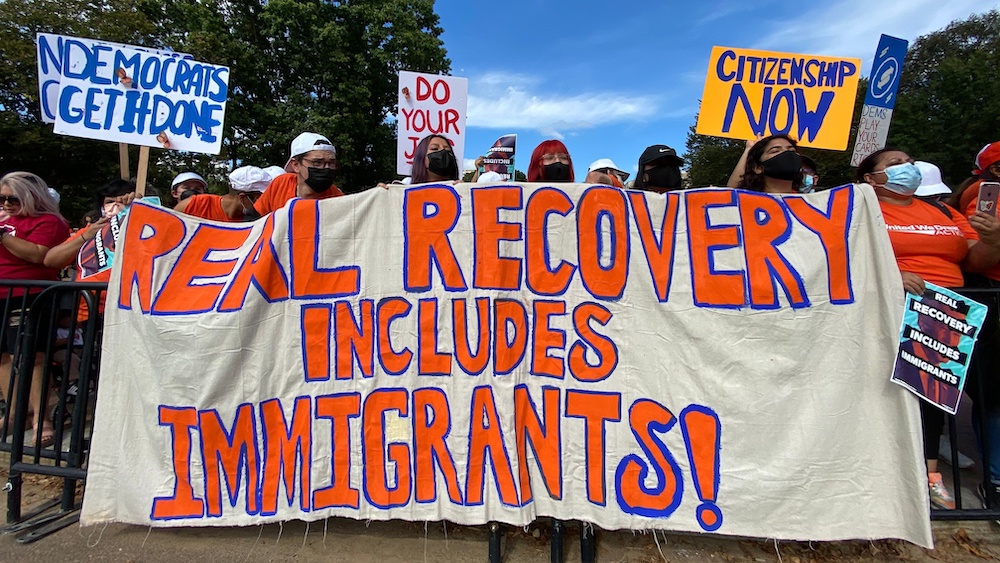If you’re interested in sharing your opinion on any cultural, political or personal topic, create an account here and check out our how-to post to learn more.
Opinions are the writer’s own and not those of Blavity's.
____
As I write this, I never thought I’d speak about my immigration status in such a public way. Until recently, I’d been involved in advocacy work for immigrant rights as an ally because of the fear of being public about my own status as an undocumented person.
I’m currently shielded from deportation through Temporary Protected Status (TPS). When I was three years old, my mom and I came to the U.S. from Sudan and we applied to receive asylum in the states. But we were told we didn’t have “enough evidence” and were denied. Shortly after, we were put in deportation proceedings until we were told about the TPS classification for Sudan. Since then, we’ve been applying annually to the TPS program, which provides me with a work permit and protections from deportation.
Growing up in Omaha, Nebraska, I became involved with community organizing that focused on immigration advocacy. In 2013, my friends and I founded the Dreamers Coalition, now called Young Nebraskans in Action (YNA) with the help of the Heartland Workers Center. Our advocacy work contributed to passing a bill in Nebraska to allow DACA recipients — another group of immigrants with temporary status — to obtain a driver’s license and professional licenses. YNA also worked to help first-time immigrant voters have a voice at the polls.
Then, when Trump was elected, things shifted. Fears my family had about our immigration status became a reality when Trump ended the TPS renewal process for Sudan, and other African and Central American nations. The Trump administration became focused on banning TPS for hundreds of thousands of primarily Black and brown people. Now, we live with the fear of losing our temporary protections and getting deported to Sudan, which is in the midst of a military coup. Currently, my status has been extended until further notice from a federal court or until Congress takes further action.
When Trump first took office, I wasn’t public about my status. All around me I saw many of my peers being pro-Trump and anti-immigration. I feared what could happen if I was more open about my status as a TPS holder. Around this same time, however, I started to see other TPS holders talking more openly about their status and what the Trump administration's assault on TPS meant for their lives.
In seeing other people in my same situation speaking up, I started to consider what it would feel like to be open about my status. Would I be capable of moving beyond calling myself an ally to immigrants? Would I be able to be open about the fact that in fighting for them, I was also fighting for myself?
Before the pandemic, I moved to Washington, D.C. for school and an internship, and that was where I first got connected to United We Dream Action, a network of young immigrants fighting for dignity for all people. This was when I learned that I was capable of being unafraid and unapologetic. Recently, I’ve started to be more open about having TPS and the uncertainty that comes with a temporary status that could be taken away at any moment.
A few weeks ago I even joined United We Dream Action outside of the White House to demand that President Biden not only denounce Trump-era policies that have largely impacted Black immigrants like me, but make good on his promise to deliver a pathway to citizenship protections for millions of TPS holders, undocumented youth and other undocumented people.
The reality is that temporary protections will always leave immigrants like me vulnerable to detention and deportation. We need President Biden to step up and keep his promise to be an ally to immigrants, and use his political muscle to ensure that a pathway to citizenship passes in his final Build Back Better package so we can finally live free of fear of being deported and separated from our families.
